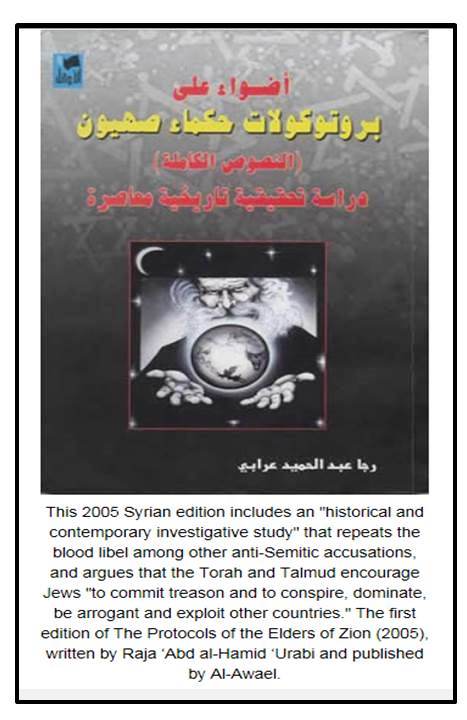“Any Arab who can will be out of here.”
Several recent articles provide a wealth of data that indicate how truly miserable conditions in many Arab countries are, and how grim the outlook for much of the Arab world is — and no, it’s not Israel’s fault. The most shocking data are from Syria (though the situation in Yemen is probably similarly dire). A recent NYT article outlines the devastation wrought by five years of war in Syria:
“Let’s take a look at the numbers. (While the following statistics are estimates, they will, if anything, get worse with the continuing matrix of wars in Syria.) More than 80 percent of Syrians live below the poverty line. Nearly 70 percent of Syrians live in extreme poverty, meaning they cannot secure basic needs, according to a 2016 report. That number has most likely grown since then. The unemployment rate is close to 58 percent, with a significant number of those employed working as smugglers, fighters or elsewhere in the war economy. Life expectancy has dropped by 20 years since the beginning of the uprising in 2011. About half of children no longer attend school — a lost generation. The country has become a public health disaster. Diseases formerly under control, like typhoid, tuberculosis, Hepatitis A and cholera, are once again endemic. And polio — previously eradicated in Syria — has been reintroduced, probably by fighters from Afghanistan and Pakistan.
Upward of 500,000 are dead from the war, and an untold number of Syrians have died indirectly from the conflict […] With more than two million injured, about 11.5 percent of the prewar population have become casualties. And close to half the population of Syria is either internally or externally displaced. A 2015 survey conducted by the United Nations refugee agency looking at Syrian refugees in Greece found that a large number of adults — 86 percent — had secondary or university education. Most of them were under 35. If true, this indicates that Syria is losing the very people it will most need if there is to be any hope of rebuilding in the future.”
But the future also doesn’t look rosy for the rest of the Arab world. MEMRI recently summarized some of the relevant findings of the latest UN Arab Human Development Report (AHDR), which focuses on “challenges and opportunities facing youth in the Arab region.” Needless to say, the comprehensive UN report is carefully “balanced,” which is to say it tries hard to package all the bad news with some slightly better news or upbeat talk about opportunities that are waiting to be seized.
As the MEMRI summary notes:
“While we would have wished otherwise, in reviewing the report we find that the critics of the ‘Arab Spring’ were more realistic in their assessment of the events of 2011 than those who were inclined to see bright stars in the sky. […] Arab youth today remain mired in poverty; they are politically marginalized and voiceless, economically disenfranchised, and socially prone to radicalization and violence. Theirs is a fragile and often volatile existence.”
“The [UN] report highlights the fact that in the last decade the region has experienced ‘the most rapid increase in war and violent conflict’ compared with other regions of the world. The Arab world also has ‘the dubious distinction’ of comprising the largest number of failed states showcasing a high scale of ‘fragility and failure’ in addition to being the source of the largest number of refugees and displaced people. While the report would not predict the level of conflict in the region, it does project that number of people living in conflict areas will increase from 250 million in 2010 to over 305 million in 2020.”
If you check out the report itself, there are plenty of findings that indicate how dire the situation in many Arab countries is and how little chance there is for rapid improvement – indeed, further decline seems more likely:
“the region still scores lower than the world average on the HDI [Human Development Index] and already lags three of the world’s six regions, namely, East Asia and the Pacific, Europe and Central Asia and Latin America and the Caribbean. By the year 2050, the region is projected to rank fifth, only a little ahead of sub-Saharan Africa.”
“Evidence shows that the prospects of young people in the region are, now more than ever, jeopardized by poverty, economic stagnation, governance failure and exclusion, all compounded by the violence and fragility of the body politic.”
“Overall, the quality of education is poor. Standardized international tests in education such as the Trends in Mathematics and Science Study (TIMSS) and the Programme for International Student Assessment show Arab countries scoring well below the average.”
“The rise of women in Arab countries is inseparably and causally linked to the future human development of the Arab region. The pervasive disempowerment of women in Arab countries is grounded in cultural, social, economic and political factors. As the 2005 and 2009 AHDRs observed, the seeds of discrimination are embedded in cultural beliefs and traditions in childraising, education, religious structures, the media and family relations.”
Among the particularly noteworthy figures in the report is the following, which shows that the overwhelming majority of Arabs consider religion, i.e. mostly Islam, as “an important part” of their daily life:

This is also an interesting finding in the context of the ongoing mass migration to very secular Europe – a migration that is most warmly welcomed by liberals who don’t think much of their own religious fellow citizens and look down on religious Americans. The importance of religion for Arabs is also noteworthy in the context of another finding in the UN report:
“It is mainly because of its high levels of social and religious intolerance that the region stands out among countries at similar levels of development around the world. Tolerance is a core value in pluralistic societies and a cornerstone of more democratic systems. […] This wide regional deficit and lack of progress on values of tolerance are worrying for the future of democracy in the region.”
While Israel has so far managed to remain “a villa in the jungle” – as Ehud Barak once put it famously – it is clearly bad news that the region looks set to remain mired in conflict and that so many fundamental factors are likely to impede social progress and economic development. A year ago, a still very relevant article in The New York Jewish Week outlined the resulting problems for Israel as explained by veteran political analyst Ehud Yaari. The article begins with an anecdote:
“Ehud Yaari characterizes his friend Bernard Lewis, the eminent scholar of the Middle East [who turned 100 last May], as possessing ‘this ability to see into the future.’ Over a recent dinner in Israel, Yaari asked Lewis what he thought the Middle East would look like in fifty years. Without hesitating, Lewis leaned over the table and said decisively, ‘Any Arab who can will be out of here.’”
Unfortunately, many of those who can’t escape the hopelessness of the Arab Middle East may end up fueling sectarian conflict and bloodshed. And for frustrated young Palestinians, it is obviously tempting to commit terror attacks. In a very interesting piece published in early January 2017, Yaari writes about Israel’s efforts to curb the wave of attacks that started in fall 2015, and it turns out that the motivations of the mostly young perpetrators clearly reflect the deep discontent and frustration as well as the religious fervor described in the UN report on the Arab world:
“most of the attackers came from the fringes of West Bank society: young people struggling with social marginalization, who had experienced repeated setbacks in their private lives or faced insurmountable personal or financial hardship. The collective profile of the assailants identified most as frustrated individuals who felt that their lives had reached a dead end, to the point that many sought salvation through martyrdom. Many of those captured during assaults told interrogators that they believed that death for the sake of jihad would reward them with the recognition they failed to obtain in life.”
Regarding the motivations of the surprisingly high number of female assailants, Yaari writes:
“Investigations showed that almost all of these women—including a 72-year-old grandmother from Hebron—were seeking to escape family hardships, such as pregnancies out of wedlock, arranged marriages, violence within the family, and so forth. Quite often it seemed that these women were seeking death or arrest in order to break away from their environment. In more than one instance, a young woman would wave a kitchen knife or scissors far from the Israeli soldiers, not posing any real threat, knowing that she would be immediately taken into custody.”
For some more on Palestinian frustration and discontent, you can check out this recent lament on “A Life of Degradation and Bitterness under Fatah Rule,” and this curse of “Israel, Hamas and Fatah” – the latter by a Palestinian who was “born and raised as a proud refugee from the Jabalia Refugee Camp in Gaza.” As much as the Palestinians may see themselves as part of the Arab world, it is definitely uniquely Palestinian to be “born and raised as a proud refugee” in a Palestinian city among Palestinians.
* * *











